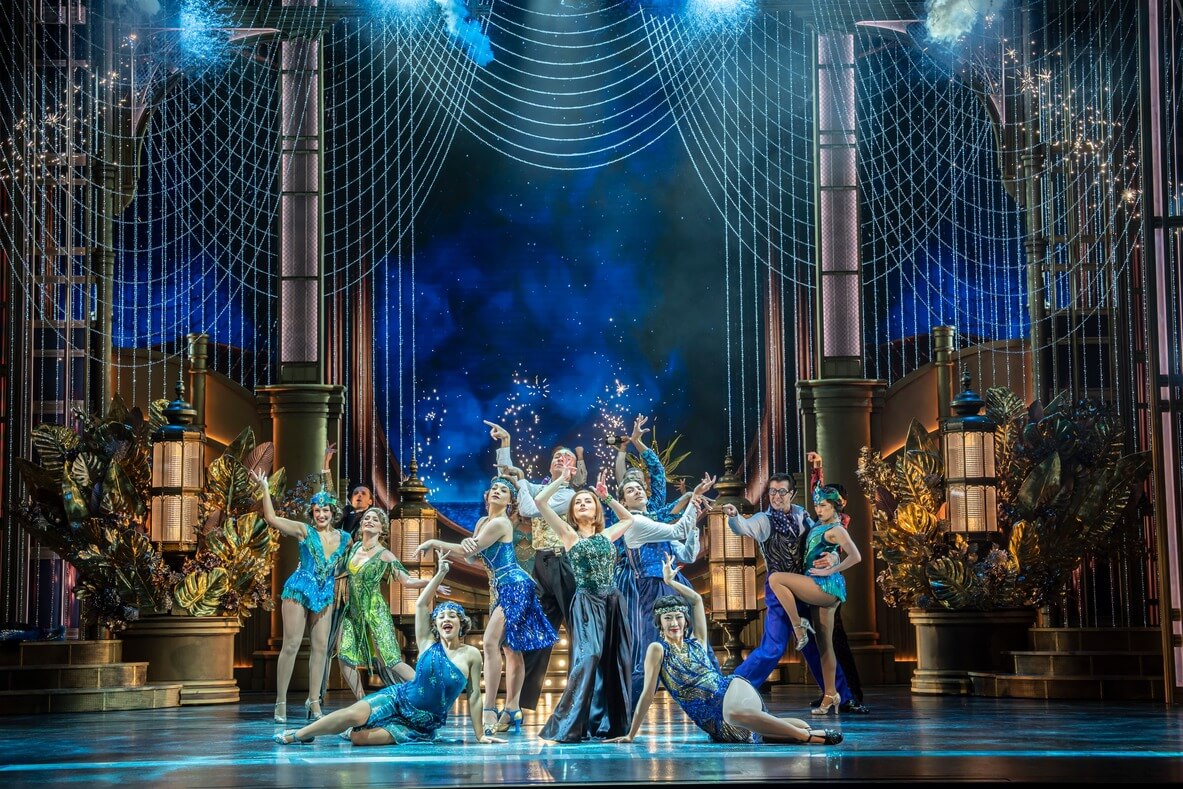Medieval Irish princess Isolde, betrothed to King Mark of Cornwall, and Tristan, King Mark’s trusted knight, drink a love potion and are immediately condemned to be desperately, devotedly and chaotically in love with each other. Their love is hopeless but unassailable, and plunges them into an ecstatic agony that can only end in their deaths. And that’s the plot, in a nutshell. It doesn’t sound like much, but I’ve heard it described as a five hour musical orgasm.
This brand new production for ENO is directed by incoming artistic director Daniel Kramer, and it’s an uneven evening, but there’s plenty to suggest promise for his tenure, once he’s had a chance to settle into the role. The storytelling is (mostly) clear and the relationships between characters well observed, which is probably the most significant contribution a director can make to this very static piece. Having the lovers strapped to gurneys by teams of scrubbed-up surgeons was, perhaps, one good idea too many.
Most of the grumbling I heard sitting in critic’s row on opening night concerned the designs by sculptor Anish Kapoor, which are never less than interesting to look at and sometimes downright beautiful but don’t necessarily serve the drama. This is especially true in act 1, which takes place onboard the ship taking Isolde to her future husband. Instead of a ship, we have a sort of brutalist pyramid, which says nothing to us about movement or travel or instability. Or a journey. And I always think nothing suggest a paucity of useful visual ideas more than a blanket use of clown-white (it seems everyone in 13th century Cornwall was wearing it). Act three, though, appears to take place in front of and, ultimately inside, a weeping, bleeding open wound, which sounds hideous but is gut-wrenchingly effective, perhaps because, by this stage of the action, any literal sense of time and place starts to become irrelevant.
American soprano Heidi Melton probably isn’t going to set the world alight with her debut Isolde but she is strong vocally and dramatically, particularly in act 1. By the section of the opera known as the Liebestod (love-death) at the very end of the opera, sung by Isolde alone, the effort is starting to show a bit. But even sopranos are human. Tenor Stuart Skelton, as Tristan, is an ENO favourite and doesn’t disappoint, mustering a thrilling range of vocal colour (he is soon to be singing this role at the Met). Karen Cargill and Craig Colclough, as the servants Brangäne and Kurwenal, cope well with their costume encumbrances to deliver committed, energetic performances, complete with some gentle character comedy. In act 3, Kurwenal’s devoted but futile tending to Tristan is particularly touching, managing to stay just the right side of Chaplinesque mawkishness. Matthew Rose makes an authoritative and but sympathetic King Mark.
Edward Gardner, ENO’s recently departed music director, conducts, and the orchestra is clearly glad to see him, relishing the chance to tackle this monumental score. This is Gardner’s first Tristan, but you’d never guess: There is total clarity and control here.
There’s not much in the way of air-con at the Coliseum, so this was a long, hot, sweaty evening. I think Wagner would approve.

 Arguably one of the most important pieces of music of the nineteenth century (harmony was never the same again), Wagner’s Tristan And Isolde makes demands on all involved in it, including the audience. There is hardly any physical action on stage, making it a director’s nightmare, the singers are required to have massive vocal and dynamic range as well as the stamina of a long distance runner and the orchestral forces required are huge. And it’s over five hours long. Oh, and Wagner demanded that an entirely new instrument be invented for its performance – a wooden trumpet (ENO has managed to lay its hands on one for this production, and it’s a surprisingly effective thing).
Arguably one of the most important pieces of music of the nineteenth century (harmony was never the same again), Wagner’s Tristan And Isolde makes demands on all involved in it, including the audience. There is hardly any physical action on stage, making it a director’s nightmare, the singers are required to have massive vocal and dynamic range as well as the stamina of a long distance runner and the orchestral forces required are huge. And it’s over five hours long. Oh, and Wagner demanded that an entirely new instrument be invented for its performance – a wooden trumpet (ENO has managed to lay its hands on one for this production, and it’s a surprisingly effective thing).



 Following the success of the 2014 production of MEDEA, actress Helen McCrory and director Carrie Cracknel return to The National Theatre with Terrence Rattigan’s THE DEEP BLUE SEA. Inspired by real life events Rattigan’s masterpiece examines the conflict between desire and love and despite being written over 60 years ago is still a relevant and moving story.
Following the success of the 2014 production of MEDEA, actress Helen McCrory and director Carrie Cracknel return to The National Theatre with Terrence Rattigan’s THE DEEP BLUE SEA. Inspired by real life events Rattigan’s masterpiece examines the conflict between desire and love and despite being written over 60 years ago is still a relevant and moving story.